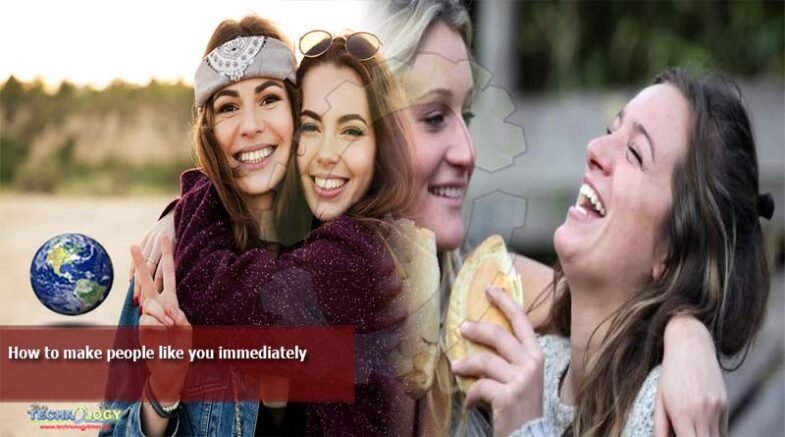Most friendships develop so naturally that you don’t even realize how or when they started. Sometimes, though, you want to make an effort to befriend with people or a new acquaintance or become a better friend to existing pals. To help you out on that front, we scoured the psychological research to find science-backed strategies to get people to like you.

1. Copy them:
This strategy is called mirroring and involves subtly mimicking the other person’s behavior. When talking to someone, try copying their body language, gestures, and facial expressions.
In 1999, New York University researchers documented the “chameleon effect,” which occurs when people unconsciously mimic each other’s behavior, and that mimicry facilitates liking.
Researchers had 78 men and women work on a task with a partner, who was really a confederate working for the researchers. The partners engaged in different levels of mimicry, while researchers secretly videotaped the interactions. At the end of the interaction, the researchers had participants indicate how much they liked those partners.
Sure enough, participants were more likely to say that they liked their partner when their partner had mimicked their behaviour.
2. Spend more time around them:
According to the mere-exposure effect, people tend to like things that are familiar to them.
Knowledge of this phenomenon dates back to the 1950s when MIT researchers discovered that college students who lived closer together in housing projects were more likely to be friends than students who lived farther apart.
This could be because students who live close by can experience more passive, day-to-day interactions with each other, such as greeting each other in the common room or kitchen. Under certain circumstances, those interactions can develop into full-fledged friendships.
More recently, psychologists at the University of Pittsburgh had four women pose as students in a university psychology class. Each woman showed up in class a different number of times. When experimenters showed male students pictures of the four women, the men demonstrated a greater affinity for those women they’d seen more often in class — even though they hadn’t interacted with any of them.
Taken together, these findings suggest that simply spending more time with people can make them like you more. Even if you don’t live near your friends, try sticking to a steady routine with them, such as going out for coffee every week or taking a class together.
3. Compliment other people
People will associate the adjectives you use to describe other people with your personality. This phenomenon is called spontaneous trait transference.
One study found that this effect occurred even when people knew certain traits didn’t describe the people who had talked about them.
According to Gretchen Rubin, author of books including “The Happiness Project,” “whatever you say about other people influences how people see you.”
If you describe someone else as genuine and kind, people will also associate you with those qualities. The reverse is also true: If you are constantly trashing people behind their backs, your friends will start to associate the negative qualities with you as well.
4. Be in a great mood
Emotional contagion describes what happens when people are strongly influenced by the moods of other people. According to a research paper from Ohio University and the University of Hawaii, people can unconsciously feel the emotions of those around them.
If you want to make others feel happy when they’re around you, do your best to communicate positive emotions.
5. Make friends with their friends
The social-network theory behind this effect is called triadic closure, which means that two people are likely to be closer when they have a common friend.
To illustrate this effect, students at the University of British Columbia designed a program that friends random individuals on Facebook. They found that people were more likely to accept their friend request as their number of mutual friends increased — from 20% with no mutual friends to close to 80% with more than 11 mutual friends.
6. Don’t be complimentary all the time
The gain-loss theory of interpersonal attractiveness suggests that your positive comments will make more of an impact if you deliver them only occasionally.
A 1965 study by University of Minnesota researchers shows how this theory might work in practice. Researchers had 80 female college students work in pairs on a task and then allowed those students to “overhear” their partners talking about them. In reality, experimenters had told the partners what to say.
In one scenario, the comments were all positive; in a second scenario, the comments were all negative; in a third scenario, the comments went from positive to negative; and in a fourth scenario, the comments went from negative to positive.
As it turns out, students liked their partners best when the comments went from positive to negative, suggesting that people like to feel that they’ve won you over in some capacity.
Bottom line: Although it’s counter intuitive, try complimenting your friends less often.
Originally published at iflscience
